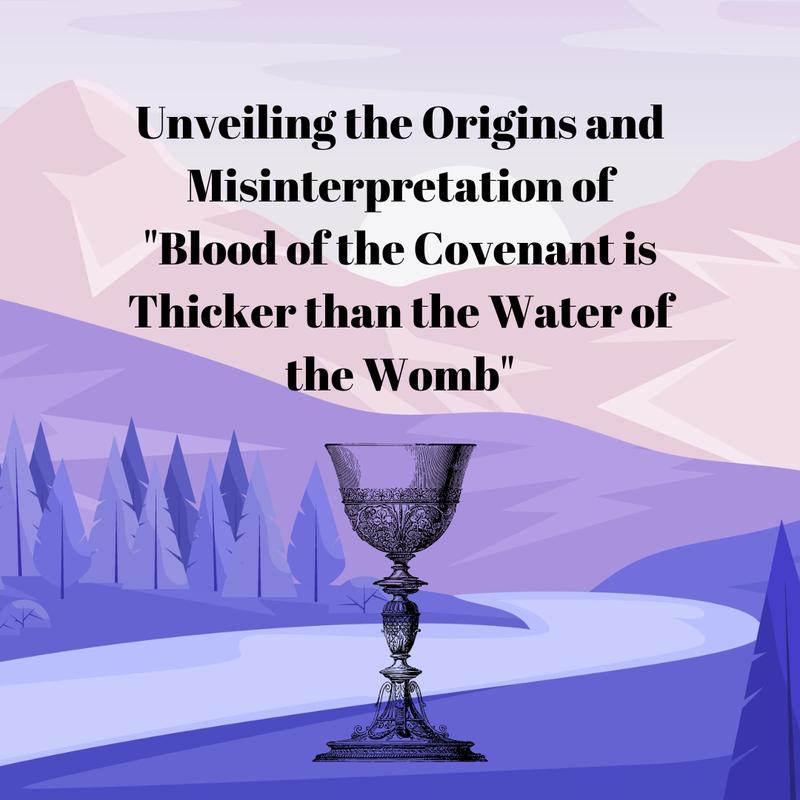Unveiling the Origins and Misinterpretation of "Blood of the Covenant is Thicker than the Water of the Womb"
Unveiling the Origins and Misinterpretation of "Blood of the Covenant is Thicker than the Water of the Womb"
The saying "Blood of the covenant is thicker than the water of the womb" has long been a source of debate and misinterpretation. Originating from a historical and religious context, this phrase has undergone significant transformation, leading to its widespread use as "Blood is thicker than water." In this article, we delve into the history of the original quote, its intended meaning, and how it came to be misconstrued over time.
Origins and Meaning:
The original quote, "Blood of the covenant is thicker than the water of the womb," can be traced back to medieval times. It emphasizes the significance of bonds created through shared experiences, commitments, and mutual agreements over those based solely on familial ties. In its essence, the phrase suggests that the relationships we choose and forge through conscious decisions can be stronger and more meaningful than those determined by birth alone.
Religious Context:
The origins of this quote can be found in biblical scripture and the idea of covenant-making. In ancient times, covenants were solemn agreements made between individuals, tribes, or nations, often sealed with the shedding of blood. These covenants were believed to be sacred and binding, surpassing the bonds of family.
Misinterpretation:
Over the centuries, the original quote underwent a transformation, resulting in the more commonly known saying, "Blood is thicker than water." This misinterpretation suggests that familial ties are inherently stronger and more important than other relationships. However, this contradicts the original meaning, which emphasizes the strength of chosen relationships over biological connections.
Factors contributing to Misinterpretation:
- Cultural Evolution: As societies evolved, emphasis on family and blood ties increased, leading to the misinterpretation of the original quote. Societal norms and expectations often prioritize biological relationships, perpetuating the belief that family bonds should always take precedence.
Simplification and Popularization: The phrase "Blood is thicker than water" is more concise and easier to remember than the original quote. Over time, this simplified version gained popularity and became widely used, further distancing it from its intended meaning.
Emotional Bias: Humans naturally tend to prioritize and romanticize familial connections due to biological instincts and emotional attachments. This bias can lead to a preference for interpreting the phrase in favor of family bonds, despite its original intent.
Reevaluating the Original Meaning:
Understanding the historical context and original intent of the quote can help us reevaluate its significance. Rather than promoting favoritism towards blood relatives, the original quote highlights the potential for deep and meaningful relationships that transcend biological connections.
Embracing Chosen Relationships:
By recognizing the original meaning, we can appreciate the importance of the relationships we actively cultivate and choose. Bonds formed through shared experiences, trust, and mutual support can be just as valuable, if not more, than familial ties.
Conclusion:
The misinterpretation of the quote "Blood of the covenant is thicker than the water of the womb" as "Blood is thicker than water" has led to a significant shift in its meaning over time. While the original quote emphasizes the strength of chosen relationships, the misinterpreted version places undue importance on biological connections. By understanding the historical context and reevaluating the original meaning, we can appreciate the significance of conscious choices in building strong and meaningful relationships.
Be the first to post a message!
